Are you planning a trip and wondering, which countries reject visas for having tattoos? This comprehensive guide, brought to you by tattooat.com, will navigate the complex world of tattoo acceptance and visa regulations. We’ll explore countries with strict tattoo policies, helping you understand cultural sensitivities and avoid potential travel hiccups, ensuring your body art doesn’t become a barrier to your adventures.
1. What Countries Have Strict Tattoo Laws or Cultural Sensitivities?
Certain countries have specific laws or strong cultural beliefs that can affect how tattoos are perceived. Knowing these nuances can help you travel with respect and avoid unwanted attention.
1.1. Iran
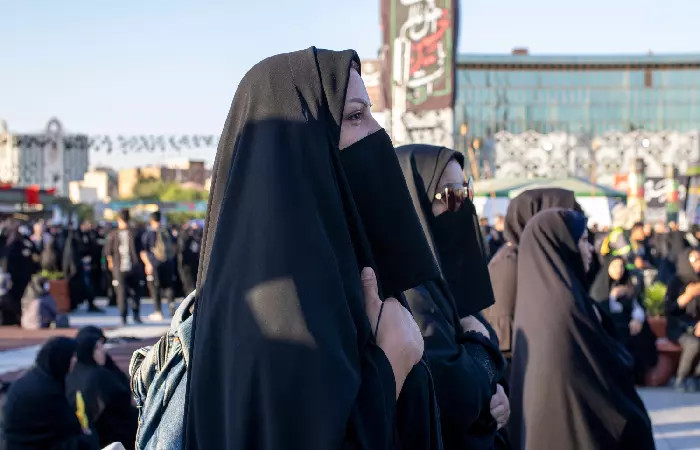 A person discreetly showing a small tattoo on their wrist in Iran, emphasizing the need for caution.
A person discreetly showing a small tattoo on their wrist in Iran, emphasizing the need for caution.
Yes, tattoos in Iran are often viewed negatively, particularly by authorities. Displaying tattoos is a sensitive issue, as leaders associate them with devil worship and Westernization. According to Islamic regulations, tattoos are banned, and visitors should be cautious about revealing any ink, especially if it has religious connotations. This is due to the strict interpretation of Sharia law.
1.2. Türkiye (Turkey)
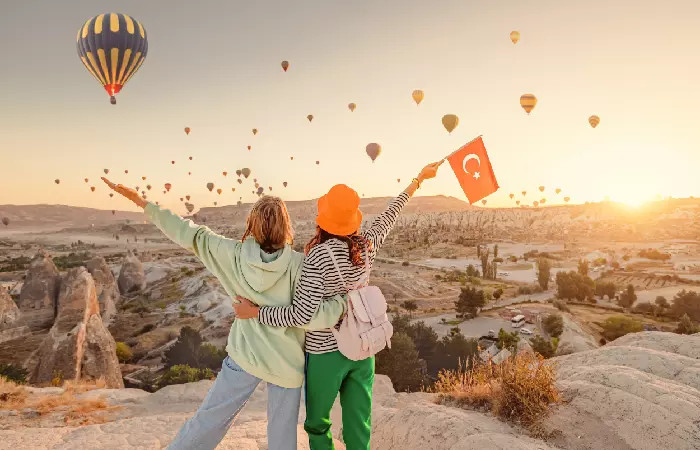 A young person with a visible arm tattoo in Istanbul, Turkey, showcasing the growing popularity of tattoos despite religious concerns.
A young person with a visible arm tattoo in Istanbul, Turkey, showcasing the growing popularity of tattoos despite religious concerns.
While tattoos are not illegal in Türkiye, religious authorities have expressed disapproval. The Religious Affairs Directorate (Diyanet) has issued a Fatwa advising Muslims to remove tattoos or seek forgiveness if removal is impossible. This stems from the belief that body art contradicts the teachings of Prophet Muhammad. Although tattoos are popular among young people in urban areas, increasing disapproval from religious officials exists.
1.3. United Arab Emirates (UAE)
 A person in Dubai carefully covering their arm tattoo with a long sleeve, illustrating the need for discretion in public.
A person in Dubai carefully covering their arm tattoo with a long sleeve, illustrating the need for discretion in public.
Not exactly, tattoos are not strictly prohibited in the UAE, but public decency guidelines are in place. While the question of whether Muslims can get tattoos is debated, most prefer not to flaunt them in public. You may need to cover tattoos in some public spaces, and certain designs (religious or offensive symbols) can cause complications. The General Authority of Islamic Affairs and Endowment views tattooing as self-harm and permits it only when performed by a licensed doctor. Violating federal laws could lead to a lifetime ban from visiting.
1.4. North Korea
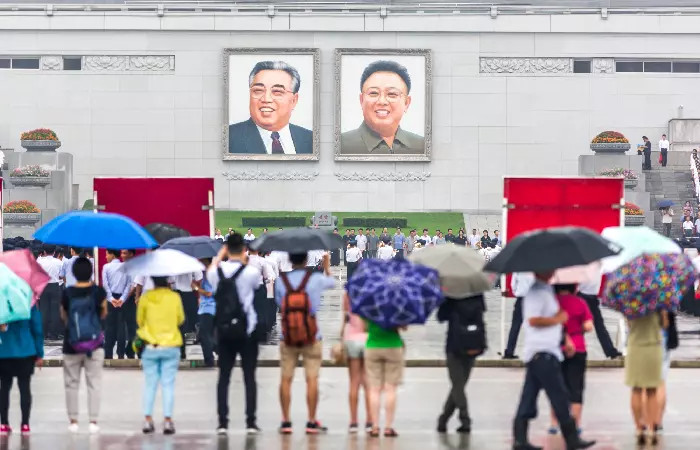 A propaganda poster in North Korea with a political tattoo depicted, highlighting the mandatory adherence to political ideologies.
A propaganda poster in North Korea with a political tattoo depicted, highlighting the mandatory adherence to political ideologies.
Yes, tattoos are permitted in North Korea, but they must adhere to strict rules. Any visible tattoos must express admiration for the Kim family or have approved political significance. If your tattoos don’t meet these criteria, you could face deportation or hard labor in prison.
1.5. South Korea
 A close-up of a tattoo artist in South Korea performing cosmetic tattooing, reflecting the changing legal landscape.
A close-up of a tattoo artist in South Korea performing cosmetic tattooing, reflecting the changing legal landscape.
While technically illegal, South Korea has seen some changes. Only doctors were allowed to perform tattoos, but now certified beauticians can apply permanent makeup tattoos. Despite this, tattooing remains a gray area legally.
1.6. Sri Lanka
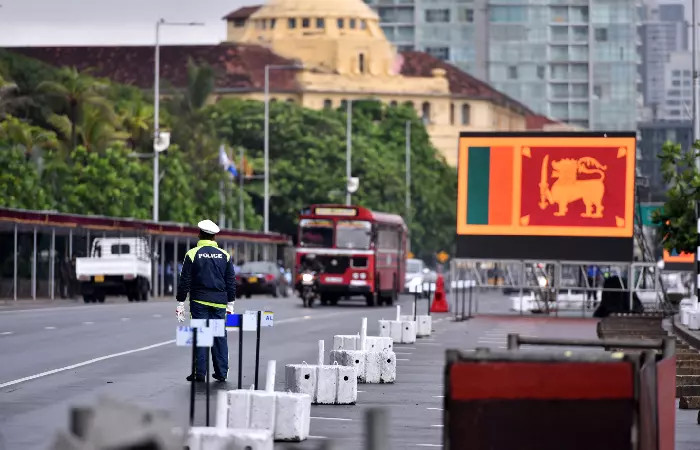 A tourist respectfully covering a Buddhist-themed tattoo in Sri Lanka, demonstrating cultural sensitivity.
A tourist respectfully covering a Buddhist-themed tattoo in Sri Lanka, demonstrating cultural sensitivity.
Yes, when traveling in Sri Lanka, be mindful of tattoos featuring Buddhist symbols, as they can be considered offensive. Depicting elements of Buddhist culture or the Buddha himself may be seen as culturally insensitive and blasphemous, leading to serious consequences, including arrests. The government is sensitive to any perceived defacement of their religion, especially when outsiders display culturally and religiously significant tattoos.
1.7. Thailand
 A traveler in Thailand with a covered religious tattoo, respecting local customs and avoiding potential offense.
A traveler in Thailand with a covered religious tattoo, respecting local customs and avoiding potential offense.
Similar to Sri Lanka, Thailand is becoming strict with tourists displaying tattoos related to religion. The Thai government considers religious tattoos culturally inappropriate and disrespectful to native religions. Non-religious tattoos are generally acceptable, as Thailand is a popular tourist destination, and locals are usually welcoming of foreigners with tattoos.
1.8. Vietnam
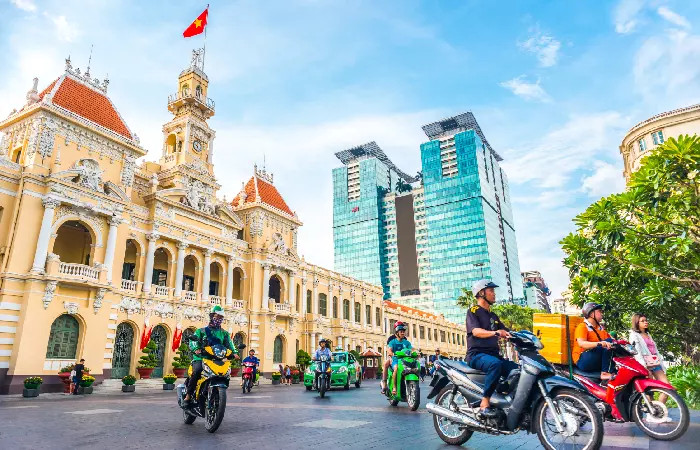 A young Vietnamese local sporting modern tattoos, showcasing the evolving acceptance of body art in urban areas.
A young Vietnamese local sporting modern tattoos, showcasing the evolving acceptance of body art in urban areas.
While tattoos in Vietnam were once linked to crime and tattoo shops were banned, attitudes have changed with global trends, and the tattoo industry is growing. In rural areas, older mindsets may still view tattoos negatively, so covering up might be wise. Seek a specialized studio in major cities for tattoo healing issues to prevent infections. Despite past stigmas, Vietnam is becoming more accepting of tattoos, especially in urban areas influenced by international trends.
1.9. Denmark
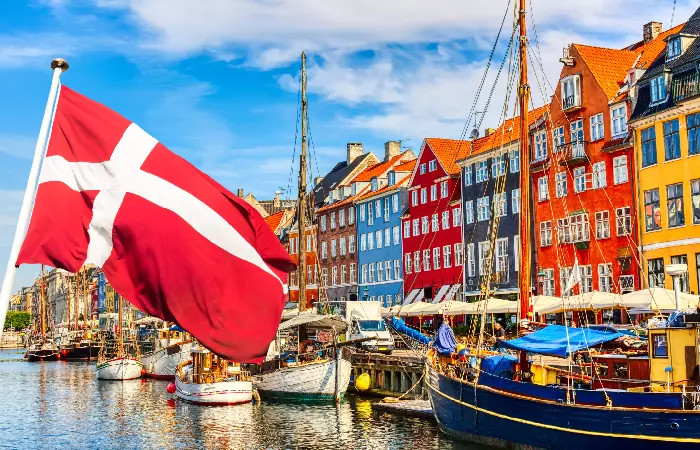 A person in Denmark with a tattoo partially visible on their hand, signaling a challenge to the existing ban on facial, neck, and hand tattoos.
A person in Denmark with a tattoo partially visible on their hand, signaling a challenge to the existing ban on facial, neck, and hand tattoos.
In Denmark, avoid tattoos on your face, neck, and hands. This law, around since 1966, prevents visible or unattractive tattoos in these areas, as the government worries they might give an unprofessional appearance, affecting social life and job opportunities. However, the Social Liberals are leading a movement to change this law, and some people are already getting tattoos in these areas or traveling to neighboring states to get inked.
1.10. Germany
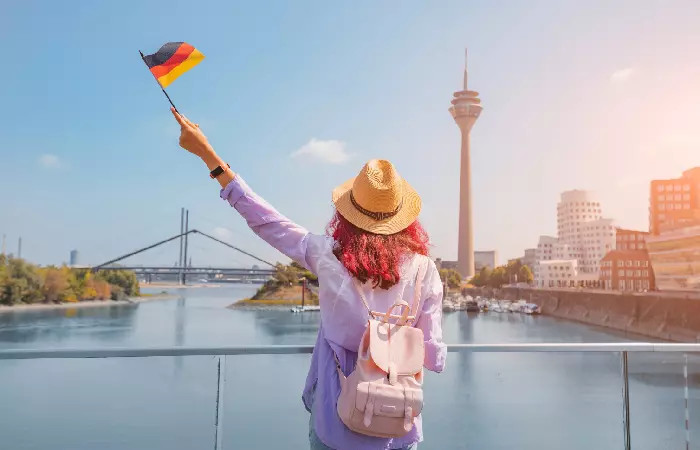 A person being arrested in Germany for displaying a Nazi-themed tattoo, highlighting the legal consequences.
A person being arrested in Germany for displaying a Nazi-themed tattoo, highlighting the legal consequences.
Yes, Germany has strict tattoo laws against showing tattoos that represent or celebrate Nazi culture. If you have such a tattoo, you could be arrested and even deported. While Germany generally accepts tattoos, anything supporting the past Nazi regime can get you into serious trouble. It’s important to be aware of the specific rules regarding tattoos related to Nazi symbols to avoid legal consequences.
2. Can Tattoos Affect Visa Applications?
While no country explicitly rejects visa applications solely based on tattoos, your body art can indirectly affect the process.
2.1. Cultural Interpretation
In countries with conservative cultural or religious beliefs, tattoos might be viewed negatively, especially if they depict sensitive or offensive imagery. According to research from Portland State University’s Art Department, in July 2023, negative cultural interpretation of tattoos can create bias. This perception could influence the visa officer’s assessment of your intentions or character, potentially leading to additional scrutiny or even denial.
2.2. Offensive or Political Imagery
Tattoos featuring offensive symbols, hate speech, or political statements against the government may raise red flags. Visa officers are responsible for ensuring national security and may deny entry to individuals whose tattoos suggest extremist views or intentions to disrupt public order.
2.3. Religious Symbols
Displaying religious symbols in a country with a different dominant religion can be seen as disrespectful or provocative, leading to complications. For example, carrying tattoos of Hindu deities in some Islamic countries might attract unwanted attention.
3. Which Factors Influence Visa Decisions Related to Tattoos?
Several factors can play a role in how tattoos might influence visa decisions:
3.1. Tattoo Visibility
The visibility of your tattoos matters. Easily concealable tattoos are less likely to cause issues compared to those on the face, neck, or hands.
3.2. Tattoo Content
The content of your tattoos is critical. As mentioned earlier, offensive, political, or religious imagery is more likely to raise concerns.
3.3. Applicant’s Demeanor
Your behavior and attitude during the visa application process also play a role. Showing respect for local customs and demonstrating a willingness to cover up tattoos when necessary can positively influence the officer’s perception.
3.4. Purpose of Visit
The purpose of your visit matters. Tourists are generally given more leeway than those seeking long-term residency or employment, as the latter implies greater integration with the local community.
4. How Can You Minimize Potential Visa Issues Related to Tattoos?
If you have tattoos and plan to travel to countries with strict tattoo laws or cultural sensitivities, consider these tips:
4.1. Research Local Customs
Before applying for a visa, thoroughly research the tattoo-related customs and laws of your destination country. This will help you understand potential sensitivities and prepare accordingly.
4.2. Cover Up When Necessary
Be prepared to cover up your tattoos in public places, especially religious sites or conservative areas. This demonstrates respect for local customs and can help avoid unwanted attention.
4.3. Choose Tattoo Designs Wisely
If you’re planning to get a new tattoo, avoid designs that could be deemed offensive or controversial in certain cultures. Opt for neutral or universally accepted imagery.
4.4. Be Respectful and Transparent
During the visa application process, be honest about your tattoos and their significance. Demonstrate respect for local customs and explain your understanding of cultural sensitivities.
4.5. Provide Additional Documentation
If you’re concerned about your tattoos affecting your visa application, consider providing additional documentation to support your case. This could include letters of explanation, references from community leaders, or evidence of your respect for local customs.
5. Which Countries Have Specific Regulations Regarding Tattoos for Residents?
Some countries have specific regulations regarding tattoos for residents, which can indirectly affect visa applicants.
5.1. Japan
While not illegal, tattoos in Japan are often associated with organized crime (Yakuza), leading to discrimination. According to the Japan National Tourism Organization, many public spaces, such as swimming pools, gyms, and onsens (hot springs), ban individuals with visible tattoos. If you plan to live in Japan, be prepared to conceal your tattoos in certain situations.
5.2. New Zealand
Tattoos are a traditional part of Māori culture in New Zealand, but certain designs and placements can be culturally sensitive. For example, facial tattoos (Moko) are highly respected and should not be appropriated by non-Māori individuals. Respecting Māori cultural traditions is essential for residents.
5.3. Samoa
Similar to New Zealand, tattoos (Tatau) are an integral part of Samoan culture, with specific designs and meanings. Non-Samoans should avoid getting traditional Samoan tattoos without proper understanding and respect for the cultural significance.
6. How Can Tattooat.com Help You Navigate Tattoo-Related Travel Concerns?
Tattooat.com is your go-to resource for navigating the world of tattoos, including travel-related concerns. Here’s how we can help:
6.1. Inspiration and Design Ideas
Looking for a new tattoo that’s culturally sensitive and universally appealing? Tattooat.com offers a vast library of tattoo designs, categorized by theme, style, and body placement. Find inspiration for your next ink and ensure it won’t cause issues during your travels.
6.2. Artist and Studio Directory
Need to find a talented tattoo artist in the USA? Our directory features a curated list of reputable artists and studios across the country, with detailed profiles, portfolios, and customer reviews. Find the perfect artist to create your next masterpiece.
6.3. Informative Articles and Guides
Stay informed about tattoo aftercare, cultural considerations, and travel tips with our informative articles and guides. Learn how to prepare for your next tattoo, care for it properly, and navigate cultural sensitivities while traveling.
6.4. Community Forum
Connect with fellow tattoo enthusiasts in our community forum. Share your experiences, ask questions, and get advice from seasoned travelers and tattoo aficionados.
7. Addressing Common Misconceptions About Tattoos and Travel
Let’s debunk some common myths about tattoos and travel:
7.1. Myth: All Islamic Countries Ban Tattoos
While some Islamic countries have strict views on tattoos, it’s not a universal ban. Countries like Morocco and Egypt have a more relaxed attitude, especially in tourist areas.
7.2. Myth: Tattoos Are Always a Sign of Criminal Affiliation
Tattoos have diverse meanings and purposes across cultures. While some tattoos may be associated with criminal groups, many people get tattoos for personal, artistic, or cultural reasons.
7.3. Myth: You Can Easily Remove Offensive Tattoos
Tattoo removal can be costly, time-consuming, and painful. It’s better to choose your tattoo designs wisely in the first place to avoid regrets later.
8. Which Recent Events Impacted Tattoo Perceptions Globally?
Several recent events have influenced how tattoos are perceived worldwide:
8.1. Increased Cultural Exchange
Globalization and increased cultural exchange have led to greater acceptance and understanding of tattoos in many countries. As people travel and interact with different cultures, stereotypes and misconceptions about tattoos are gradually fading.
8.2. Celebrity Influence
Celebrities with tattoos have played a significant role in normalizing body art. When influential figures proudly display their tattoos, it encourages others to embrace their own ink and challenge societal norms.
8.3. Legal Changes
Some countries have revised their laws and regulations regarding tattoos, reflecting a more progressive and tolerant attitude. For example, South Korea’s decision to allow certified beauticians to perform permanent makeup tattoos is a step towards recognizing tattooing as a legitimate form of artistic expression.
9. How Do Cultural Taboos Around Tattoos Vary?
Cultural taboos around tattoos vary significantly, reflecting unique histories, beliefs, and traditions.
9.1. Religious Beliefs
In some religions, tattoos are forbidden or discouraged due to beliefs about altering the body, which is seen as a sacred creation. Islamic and Orthodox Jewish traditions often prohibit tattoos, while some Christian denominations have varying views.
9.2. Social Status
Historically, tattoos have been associated with specific social groups, such as sailors, soldiers, or criminals. These associations can create stigma and prejudice, making it difficult for tattooed individuals to gain acceptance in certain social circles.
9.3. Gender Roles
In some cultures, tattoos are more acceptable for men than women, or vice versa. Traditional Māori tattoos, for example, have different designs and meanings for men and women.
10. Which Are The Alternative Forms of Body Art and Their Acceptance?
If you’re concerned about the potential implications of tattoos, consider exploring alternative forms of body art that may be more accepted in certain cultures.
10.1. Henna
Henna is a temporary form of body art that uses a natural dye to create intricate designs on the skin. It’s widely used in South Asia, the Middle East, and Africa for celebrations and ceremonies.
10.2. Body Painting
Body painting involves applying non-toxic paints to the skin to create temporary designs. It’s often used for festivals, performances, and artistic expression.
10.3. Piercings
Body piercings are generally more accepted than tattoos in many cultures, although certain piercings may still be considered taboo.
Navigating the world of tattoos and travel can be complex, but with the right information and preparation, you can confidently explore the globe without compromising your self-expression. Remember to research local customs, cover up when necessary, and choose tattoo designs wisely. Visit tattooat.com for inspiration, artist recommendations, and informative articles to guide your tattoo journey. Whether you’re seeking a design, a skilled artist, or simply reliable information, tattooat.com is your trusted companion.
Ready to explore the world of tattoos with confidence? Discover stunning designs, find talented artists, and learn everything you need to know at tattooat.com today! For further inquiries, contact us at Address: 1825 SW Broadway, Portland, OR 97201, United States or Phone: +1 (503) 725-3000.
Frequently Asked Questions (FAQ)
1. Can a tattoo of a religious symbol prevent me from getting a visa?
Potentially, it depends on the country and the symbol. Displaying religious symbols in a country with a different dominant religion can be seen as disrespectful or provocative, leading to complications.
2. What if my tattoo has a hidden meaning that might be misinterpreted?
It’s best to be prepared to explain the meaning of your tattoo if questioned by a visa officer. Providing context can help prevent misinterpretations.
3. Is it better to get a tattoo after I’ve obtained my visa?
If you’re planning to travel to a country with strict tattoo laws or cultural sensitivities, it’s generally advisable to get your tattoo after you’ve obtained your visa.
4. Does the size of the tattoo matter?
Yes, larger and more visible tattoos are more likely to attract attention and potentially raise concerns during the visa application process.
5. Can I appeal a visa denial based on my tattoos?
You can appeal a visa denial, but you’ll need to provide compelling evidence that your tattoos do not pose a threat to national security or violate local customs.
6. Are there specific tattoo styles that are more likely to cause problems?
Yes, tattoos associated with gangs, hate groups, or extremist ideologies are more likely to cause problems.
7. Should I declare my tattoos on my visa application?
Be honest, some applications ask about visible markings, so it’s best to be transparent.
8. What if I’m traveling for a tattoo convention?
Traveling for a tattoo convention may require additional documentation, such as proof of registration and a detailed itinerary.
9. Do different embassies have different policies regarding tattoos?
Yes, policies can vary between embassies, so it’s essential to research the specific requirements of the embassy you’re applying to.
10. How can I find reliable information about tattoo-related travel restrictions?
Websites like tattooat.com offer valuable insights and resources for navigating tattoo-related travel concerns.